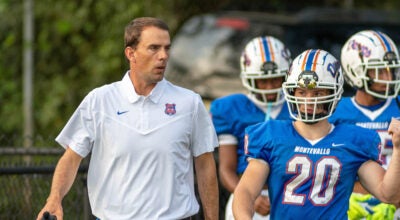Tradition meets change at UM
Published 8:15 pm Monday, December 29, 2008
I am finding that I have a strong aversion to the word “balancing” in public discourse, especially when that discourse involves the University of Montevallo.
To some people, the word “balancing” implies that one must search for the point of equilibrium where two competing forces can be neutralized and all further debate rendered moot.
To other people, the word “balancing” implies dilution or compromise.
Rather than balancing when it comes to competing virtues, I prefer concepts like “synthesis” and “synergy.”
For example at Montevallo, tradition is strong. But the need to adapt to a changing world is also strong.
Some would argue that we must therefore “balance” our notions of tradition and change.
I would argue, however, that “balance” is the wrong perspective for a top tier liberal arts university with a long tradition of quality education.
First, we need to recognize that tradition is often found at the heart of our most important moments of change.
When Abraham Lincoln spoke, at Gettysburg, of “a new birth of freedom,” he was speaking of change, but he was also speaking of tradition. He hearkened back to the core tradition our founders had expressed in the Declaration of Independence. Lincoln did not view emancipation as a change from tradition, but rather as the fulfillment of our traditional core values of freedom and equality.
Here at Montevallo, when we speak of the need to expand access to education for students from diverse backgrounds, we are not changing for the sake of “balancing change with tradition” or for the sake of change itself.
Instead, we are hearkening back to the vision of our founder, Julia Tutwiler, who believed that education should not be the province of young men only. I believe she would embrace our international notion of access for all scholars.
To be understood by our students change must actually be grounded in our deepest and most powerful traditions. This does not involve “balance.”
It requires that change be rooted in respect for the wisdom of experience. The healthiest academic institutions are those that evolve and change in positive directions while maintaining the strength of their important traditions.
Dr. Philip C. Williams is president of the University of Montevallo.









